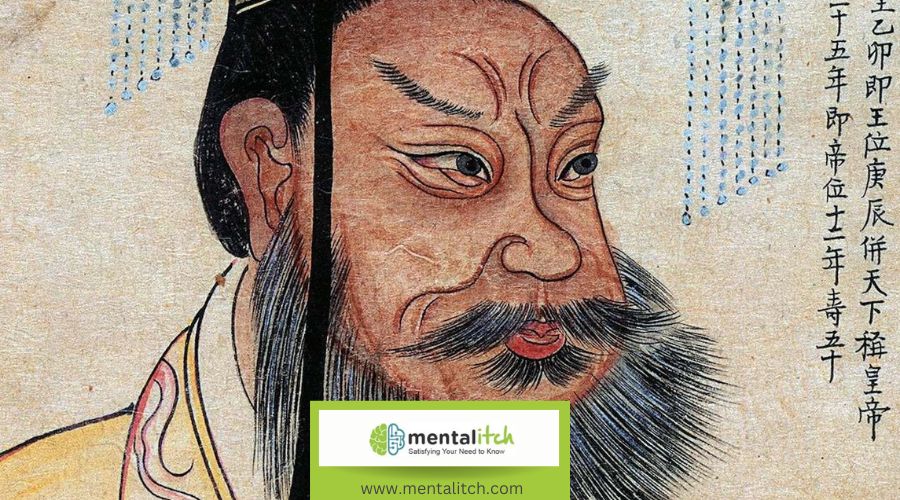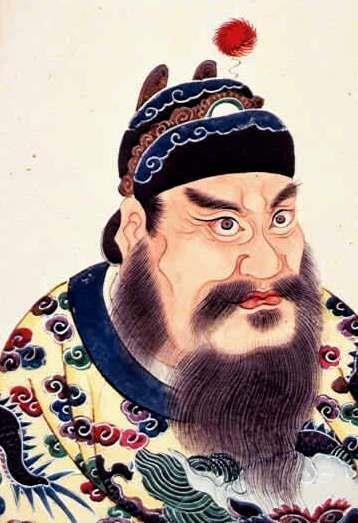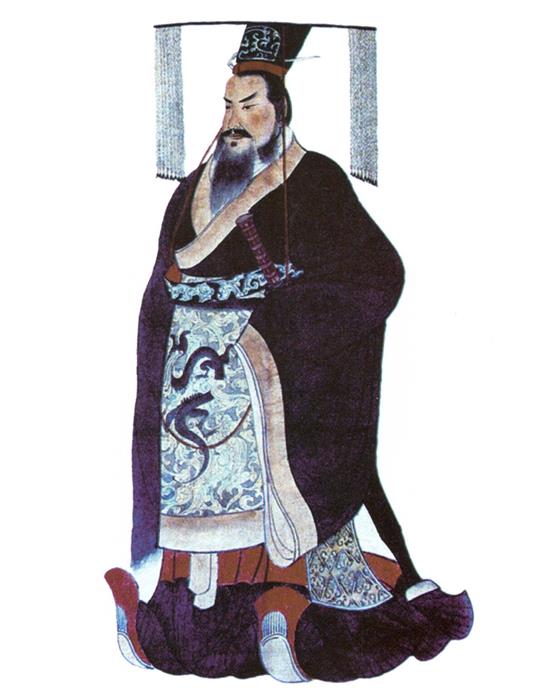The Warring States Period was a time of intense conflict and chaos in ancient China, lasting from around 475 BC to 221 BC. Imagine a land divided, where seven major states battled fiercely for dominance. This era was marked by continuous warfare, political intrigue, and shifting alliances. The people of China longed for stability and peace as their lives were upended by the constant struggle for power. It was a period that set the stage for one of history’s most significant transformations, led by an ambitious and visionary leader.
Qin Shi Huang, originally named Ying Zheng, rose from these tumultuous times to become China’s first emperor. His journey to power began in the state of Qin, one of the seven warring states, where he became king at the young age of 13. Despite his youth, Qin Shi Huang displayed remarkable determination and strategic acumen. He quickly moved to consolidate his power, surrounding himself with capable advisors and generals. His goal was clear: to end the centuries-old chaos and unite the fractured Chinese states under a single rule.
Unification of China
The era leading up to the unification of China was marked by relentless warfare and political turmoil, known as the Warring States Period. This tumultuous time saw seven major states vying for dominance, each seeking to expand its power and territory. The stage was set for a leader bold enough to change the course of history. Enter Qin Shi Huang, a ruler whose ambitions stretched beyond mere conquests. His vision was to meld these fractured states into a single, cohesive nation.
Ending the Warring States Period
Qin Shi Huang’s rise to power was anything but ordinary. Through a combination of military might and strategic acumen, he managed to do what no one before him could: unify China. His military campaigns were ruthless and effective, systematically dismantling the defenses of rival states. By employing a mix of brute force and clever diplomacy, he gradually brought each state under his control. His tactics were not just about overwhelming his foes; they were about outsmarting them, using spies to gather intelligence and turning rival states against each other.
Building a Centralized State
With the battlefield victories secured, Qin Shi Huang shifted his focus to the monumental task of governing his new empire. He introduced sweeping administrative reforms that upended the existing feudal system. Power was no longer a birthright but something that had to be earned, with capable administrators chosen for their skills and loyalty. He divided the empire into administrative districts, each directly controlled by the central government, effectively diluting the power of potential rivals.
A standardized system of laws was implemented, ensuring that justice was no longer a local affair but a uniform principle that applied to all citizens. Weights, measures, and even the currency were standardized, facilitating trade and interaction among the previously disparate states. These reforms were not just about control; they were about laying the foundation for a unified and prosperous nation.
Forging a Unified Chinese Identity
Perhaps Qin Shi Huang’s most enduring legacy was his role in creating a singular Chinese identity. At the heart of this endeavor was the standardization of the Chinese script. Before his time, the written word varied significantly from one state to another, complicating communication and administration. By standardizing the script, Qin Shi Huang ensured that people across the vast empire could communicate with each other, share ideas, and participate in a shared culture.
This move had profound implications for social cohesion. A unified script facilitated the spread of ideas, the conduct of trade, and the administration of law. It also helped to foster a sense of belonging among the people, who could now see themselves as part of a larger Chinese civilization.
Major Achievements and Reforms
Qin Shi Huang’s reign marked a period of unprecedented reform and achievement that reshaped China. His forward-thinking policies laid the groundwork for a nation that could stand the test of time.
Legal and Administrative Reforms
At the core of Qin Shi Huang’s strategy was a revolutionary approach to governance. He introduced the concept of appointing officials based on their merit, an idea that was radical for its time. This move ensured that the most capable individuals, rather than those born into privilege, governed the land. The impact was immediate and profound, leading to more efficient and effective administration.
Further, he divided the country into administrative units, directly overseen by the central government. This not only curbed the power of potential rivals but also streamlined governance, making it easier to implement laws and collect taxes. The result was a stronger, more unified state apparatus.
Economic Policies
Qin Shi Huang also turned his attention to the economy, implementing measures that spurred growth and stability. The standardization of currency was a masterstroke, simplifying trade and commerce across the empire. Before this, each state had its currency, complicating transactions and limiting economic interaction.
Infrastructure received a significant boost under his rule. Massive projects, including the construction of roads and canals, connected different parts of the empire like never before. These developments not only facilitated trade but also helped in the quick movement of troops, reinforcing the empire’s strength.
Defensive Measures
Understanding the importance of a strong defense, Qin Shi Huang initiated the construction of the Great Wall of China. This monumental project was aimed at protecting the empire from northern nomadic tribes. By connecting and extending existing fortifications, he created a formidable barrier that served as both a physical and symbolic divide between civilization and the untamed lands beyond.
In addition to the Great Wall, he fortified various regions of the empire against potential invasions. These measures ensured the security of the state and peace of mind for its citizens, allowing them to focus on agriculture, trade, and other activities that contributed to the prosperity of the empire.
Authoritarian Rule and Legacy
Qin Shi Huang, China’s first emperor, left an indelible mark on history with his revolutionary policies and iron-fisted rule. His methods for maintaining power and his contributions to Chinese civilization were as impactful as they were controversial.
Methods of Maintaining Power
To secure his reign, Qin Shi Huang adopted strict measures. He imposed harsh legal punishments to deter crime and enforce order, ensuring that his subjects followed the laws to the letter. This approach, while effective in maintaining control, was often criticized for its severity.
Censorship and the suppression of dissent played a crucial role in his administration. Qin Shi Huang is infamous for the burning of books and the burying of scholars, a drastic measure aimed at consolidating his power and eliminating intellectual opposition. By controlling the flow of information and stifling critical voices, he sought to unify thought and culture under his rule.
Contributions to Chinese Civilization
Despite his authoritarian methods, Qin Shi Huang’s reign was transformative for Chinese civilization. His efforts to centralize and standardize the state facilitated the smooth functioning of a vast empire. The uniformity in laws, currency, weights, and measures, as well as the standardization of the written script, were monumental in promoting economic growth and cultural integration across diverse regions.
His role in shaping the Chinese state and identity cannot be overstated. By unifying the warring states into a single empire, he laid the groundwork for the concept of a unified China, a legacy that has persisted through millennia.
Historical Assessment and Controversy
Qin Shi Huang’s rule has been a subject of debate among historians. On one hand, he is viewed as a tyrant whose authoritarian rule brought unnecessary suffering to his people. His harsh punishments and suppression of free thought are often cited as evidence of his tyranny.
On the other hand, he is recognized as a visionary leader who managed to accomplish what seemed impossible: the unification of China. His achievements in centralization, standardization, and defense prepared China for future challenges and prosperity. As the first emperor of a unified China, his impact on the country’s development is undeniable.
Conclusion
Qin Shi Huang’s reign was a turning point in Chinese history. His legal and administrative reforms, economic policies, and defensive measures not only unified the country but also laid the foundation for its future growth. Through his visionary leadership, he transformed China into a centralized state, poised for centuries of dominance. These achievements underscore his legacy as a ruler who was not only ahead of his time but also deeply committed to the welfare and advancement of his people.


